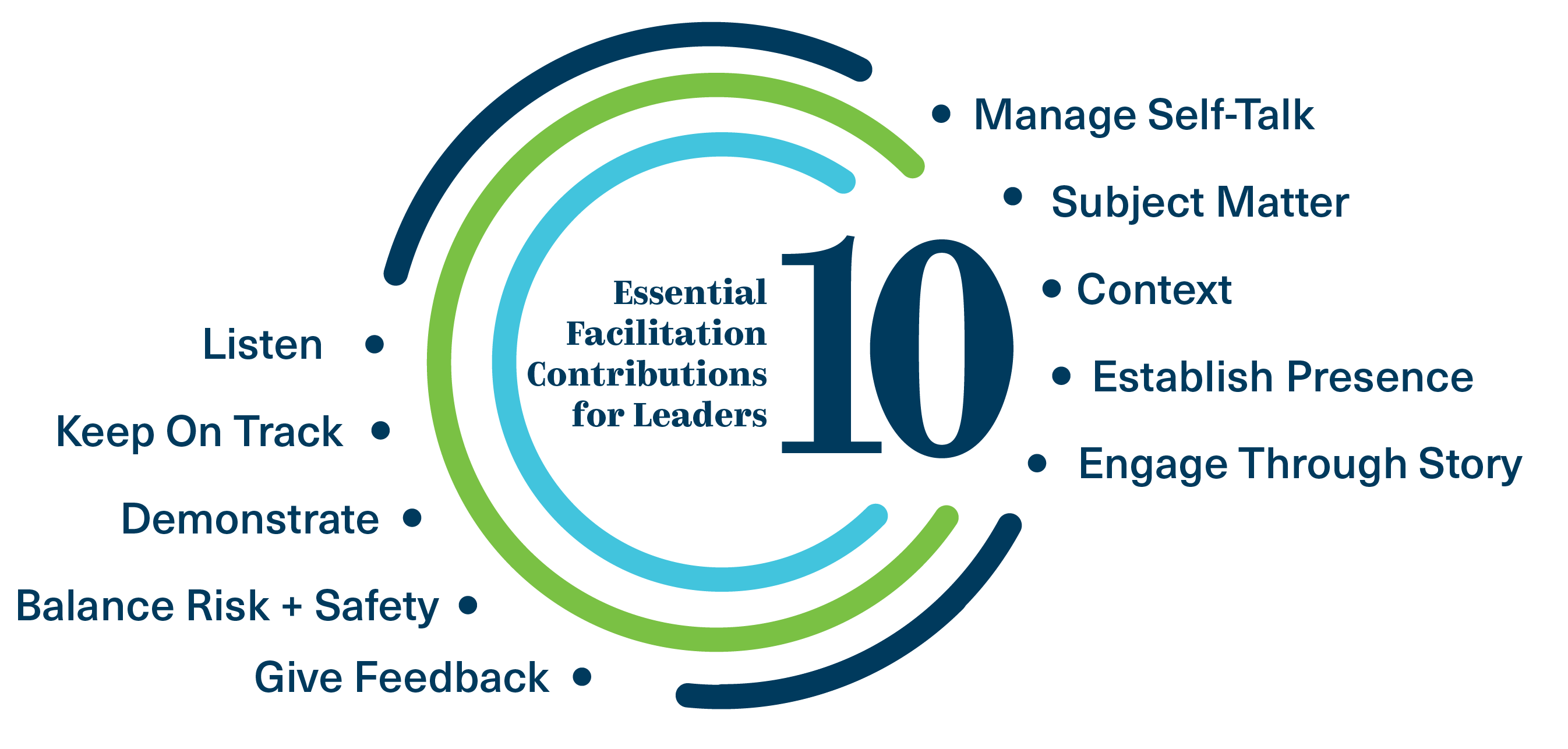Be Future Ready: 10 Essential Facilitation Skills for Leaders
By Jeff Mitchell, President/Partner
Think about the time you spend trying to keep meetings on track, drive inclusive collaboration, and communicate ideas with impact. Whether you host client meetings or book clubs, you rely on facilitation skills to ensure interactions are effective and move you toward your goals.
If you aren’t investing time in developing your facilitation skills, you’re limiting your potential and the potential of the teams of which you’re a member.
At Proteus, we’ve helped people unlock the power of effective facilitation for decades. If you’re a leader looking for new ways to elevate team performance or accelerate an initiative, improving your facilitation skills will help you level up.
Why Are Facilitation Skills So Valuable for Leaders?
Leaders are expected to get results and effective facilitation makes that easier. According to the International Institute for Facilitation and Change, the benefits of strong facilitation include:
- Efficiency—Outcomes are achieved faster.
- Effectiveness—Meeting time has a higher return on investment.
- Collaboration—Meetings are more inclusive and have an open exchange of ideas.
- Accountability—People leave meetings clearer about who’s accountable for what.
As a leader, facilitation skills equip you to adapt to—and take advantage of—the changing realities of the workplace. You’re more prepared for the future because you’re able to:
- Increase team member buy-in;
- Improve the relationships between team members;
- Improve adaptability and resilience;
- Bring focus + clarity to teams as they plan and take action.
10 Essential Facilitation Contributions
Based on our observations of thousands of meetings around the world, we’ve identified 10 distinct facilitation skills for leaders that elevate any meeting, training, or conversation. We call these high-impact behaviors facilitation “contributions.”
Reflect on recent situations where you were in a leadership role and had the opportunity to make group interactions more impactful. Did you make any of the contributions below?
Manage Self-Talk
Be aware of your inner voice and know how to manage the voice to perform your best.
Subject Matter
Incorporate your subject matter expertise in your presentation to display authority on the topics at hand.
Context
Demonstrate an understanding of the organization and culture, and relate your content directly to priorities of the meeting.
Establish Presence
Use your body, voice, and words to project confidence and credibility in your interactions.
Engage Through Story
Use stories to spark interest, foster engagement, impact attitudes, and build connection.
Listen
Demonstrate understanding of what people say, ask curious questions, and hear what others say to encourage participation.
Keep On Track
Balance forward movement with depth of process to ensure you’re moving everyone toward the meeting’s objective.
Demonstrate
Show what you’re telling with realistic and relevant examples.
Balance Risk + Safety
Find the sweet spot between people feeling safe and stretching outside their comfort zone.
Give Feedback
Give specific feedback—what’s working and what’s not working—so people are motivated by progress and clear about what to change.

Building Facilitation Skills for Leaders Increases Effectiveness and Agility
Effective facilitation skills for leaders lead to better outcomes for everyone involved, in the near term and in the future.
Proteus experts can help you establish effective facilitation as a competency in your organization and support the development of these skills.
Our team will recommend a development strategy tailored to your unique situation with opportunities to learn these multipurpose skills in a safe, encouraging environment via individual coaching, group workshops, and immersive simulated practice. Learn more about our Facilitation Excellence practice and contact us to get started.





